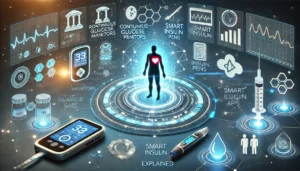alt=”Description of image content” style=”width:650px; height:auto;”/>
“`html
Rising Blood Pressure and Social Needs Crisis in Youth Today
In recent years, concerns about elevated blood pressure and unmet social needs among children and young adults have risen sharply. These issues highlight complex intersections between health and social determinants, emphasizing a critical need for integrated solutions.
Understanding Elevated Blood Pressure in Young Populations
Traditionally regarded as a condition affecting older adults, high blood pressure—or hypertension—is increasingly being identified in younger demographics. This worrying trend demands attention and action from healthcare providers and caregivers alike.
Factors Contributing to High Blood Pressure
- Unhealthy Diet: High intake of sodium and low consumption of potassium can elevate blood pressure.
- Physical Inactivity: Sedentary lifestyles, exacerbated by increased screen time from digital devices, contribute significantly.
- Obesity: Rising obesity rates, particularly in children and adolescents, correlate strongly with hypertension.
- Stress: Academic pressures and social stressors contribute to increased anxiety, leading to potential hypertension.
Collectively, these factors create a perfect storm for the development of hypertension in younger people. The existing healthcare systems must adapt to accommodate and address this growing problem.
The Unmet Social Needs of Today’s Youth
Beyond the physiological aspects, there are significant social needs that remain unmet among children and young adults. Understanding these needs is crucial for devising comprehensive health strategies.
Core Areas of Need
- Mental Health Support: Mental health issues often go unrecognized and untreated among youth.
- Access to Education: Disparities in educational resources can lead to long-term socioeconomic inequalities.
- Nutrition Security: Many young individuals lack access to healthy and affordable food options.
- Safe Environments: Insecure housing and unsafe neighborhoods impact physical and psychological well-being.
Addressing these unmet social needs is essential not only for improving immediate quality of life but also for preventing future health complications.
The Interplay Between Blood Pressure and Social Determinants
The connection between elevated blood pressure and unmet social needs is not coincidental. Many of the social determinants of health contribute directly to the physical health challenges faced by young individuals.
Impact of Social Influences on Health
- Poverty: Economic strain can limit access to healthcare, nutritious food, and safe living conditions.
- Education: Lower educational attainment is linked to fewer opportunities for health-promoting jobs and activities.
- Social Support: A lack of community and familial support systems can exacerbate stress and poor health outcomes.
- Healthcare Access: Gaps in healthcare access and preventative services can lead to undiagnosed and unmanaged hypertension.
Efforts to improve health outcomes for young populations must address these social determinants as a part of any comprehensive strategy.
Strategies for Addressing These Challenges
Integrative approaches that combine health and social services are key to addressing both elevated blood pressure and unmet social needs among youth.
Community-Based Initiatives
- School Programs: Implementing school-based health education and regular screenings for hypertension can lead to early detection and intervention.
- Public Health Campaigns: Increasing awareness of the importance of a healthy lifestyle through community campaigns can help shift public behavior.
- Parental Involvement: Educating parents about the risks of hypertension and promoting healthy home environments can support children’s health.
- Collaboration: Partnerships between healthcare providers, schools, and community organizations can enhance resource sharing and support services.
These initiatives not only address health concerns directly but also foster a supportive network that can help mitigate the social issues leading to poor health outcomes.
Conclusion
The rising prevalence of elevated blood pressure and unmet social needs in children and young adults represents a multidimensional public health crisis. Effective intervention requires a coordinated approach that merges medical care with social support systems to create sustainable change.
As society moves forward, there is a pressing need for stakeholders across the private and public sectors to prioritize these interconnected issues, ensuring that future generations have the opportunity to live healthier, more fulfilling lives.
“`



